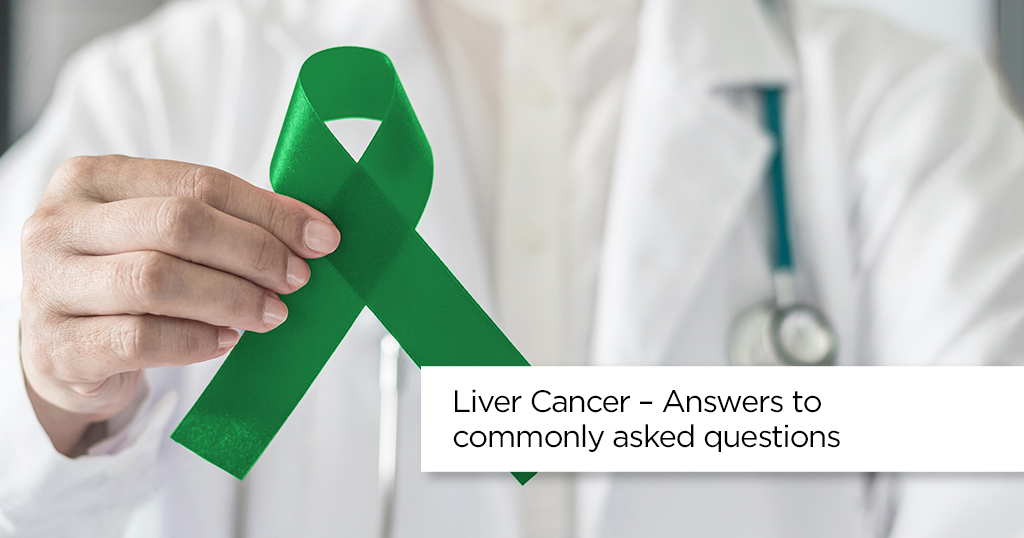Dr Muralidhar Nambada
MS (General), DNB (Surgical Gastroenterology), FMAS
Consultant Gastrointestinal Surgeon
Apollo Cancer Hospitals, Vishakhapatnam
Q. WHAT ARE THE SYMPTOMS OF LIVER CANCER?
A. In significant number of cases, a liver cancer or tumuor is picked up on a routine ultrasound of the abdomen done during a health check. In other words many of these cancers are asymptomatic even till they attain a significant size. However, the common symptoms of liver cancer are
- Pain in the upper abdomen.
- A Lump in the abdomen.
- Feeling of severe weakness.
- Loss of appetite and weight loss
- Jaundice (when it is associated with advanced liver disease)
- Swelling of feet and other associated symptoms of chronic liver disease like altered behaviour, dark coloured stool, blood vomiting, distension of the abdomen
Q. WHAT ARE THE CAUSES FOR LIVER CANCER?
A. Majority of the liver cancers occur in a diseased liver or chronic liver disease, the causes of which may be due to
- Viral infection (Hepatitis B, Hepatitis C virus)
- Alcohol
- Fatty Liver disease
- Chronic liver disease due to some inborn metabolic errors or inherited disorders
- Liver cancer can also occur in a normal liver
Q. HOW IS LIVER CANCER DIAGNOSED?
A. Liver cancer is usually first identified on an Ultrasound Scan of the abdomen. Once a liver tumour is identified on an ultrasound scan, the next test to characterize the type of tumour is either a CT Scan or MRI of the abdomen with contrast injection (We call it as a TRIPHASIC SCAN of the Abdomen). When the tumor shows specific/characteristic features of liver cancer (Usually a Hepato Cellular Carcinoma which is the most common tumor), a biopsy is not routinely recommended. A decision to operate can be made based on the CT or MRI images.
Q. WHAT TREATMENT OPTIONS ARE AVAILABLE FOR LIVER CANCER?
A. Treatment depends on the stage of liver cancer.
The commonly followed staging system for liver cancer is the BARCELONA CLINIC LIVER CANCER staging system. This staging system take in to account, the size and number of liver tumours, the performance status of the patient and the underlying liver function.
For patients with small tumours with well-preserved liver function and those who are fit for surgery, a LIVER RESECTION (removal of a part of liver) is offered provided the remaining liver tissue is deemed to be fit to function normally. This function of the remaining liver can be assessed before surgery by a test what is known as CT VOLUMETRY.
In a patient with chronic liver disease/Cirrhosis of liver and liver cancer, the best treatment option would be a LIVER TRANSPLANT, provided the patient’s disease satisfies certain criteria (mainly the size and number of tumours). This is important because,
performing a liver transplant in a patient with advanced cancer who would otherwise have a bad outcome will result in wastage of a precious organ. So we use strict selection criteria to offer liver transplant, so that the outcomes are good and cancer doesn’t re-occur early in the transplanted liver.
When the patient is deemed not fit for either liver resection or liver transplant, then these patients may undergo a non surgical procedure known as TACE (Trans Arterial Chemo EMbolization). In this procedure, the blood flow to the tumor is blocked and chemotherapeutic drug is instilled by means of an angiographic procedure (similar to an angiogram done for heart disease)
RADIO FREQUENCY ABLATION (RFA) is another treatment option for very small tumours (3 to 5 cm), in which surgery and RFA offers same results.
Other treatment options include Microwave Ablation, Trans Aretrial Radio Embolization and chemotherapy.
Unlike injectable chemotherapy for other cancers, we have only oral chemotherapy (like SORAFENIB/ REGORAFENIB) for liver cancer which offer a survival advantage of an additional 6 to 10 months.
Q. HOW TO PREVENT OR REDUCE THE RISK OF LIVER CANCER?
A. Liver cancer risk may be reduced by
- Adopting a healthy life style (quit smoking and reduce alcohol intake, regular physical activity)
- Get vaccinated against Hepatitis B Virus.
- Get Treated for Hepatitis C Virus infection. Avoid Hepatitis C infection in the first place by adoption safe sexual practices, avoiding IV drug abuse
- Get rid of Fatty Liver Disease by regular exercise and healthy food habits (reduce on the carbohydrate diet)


















